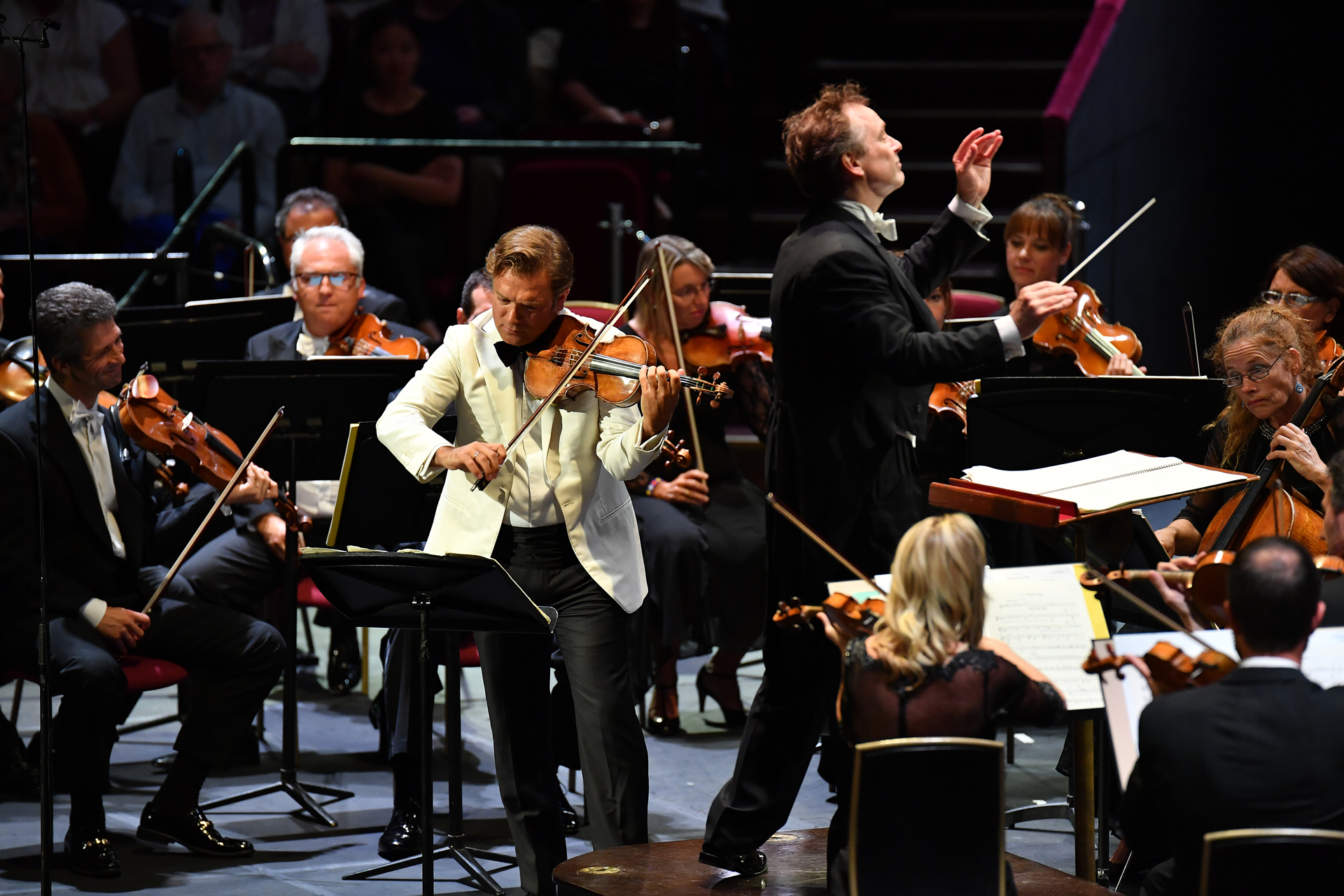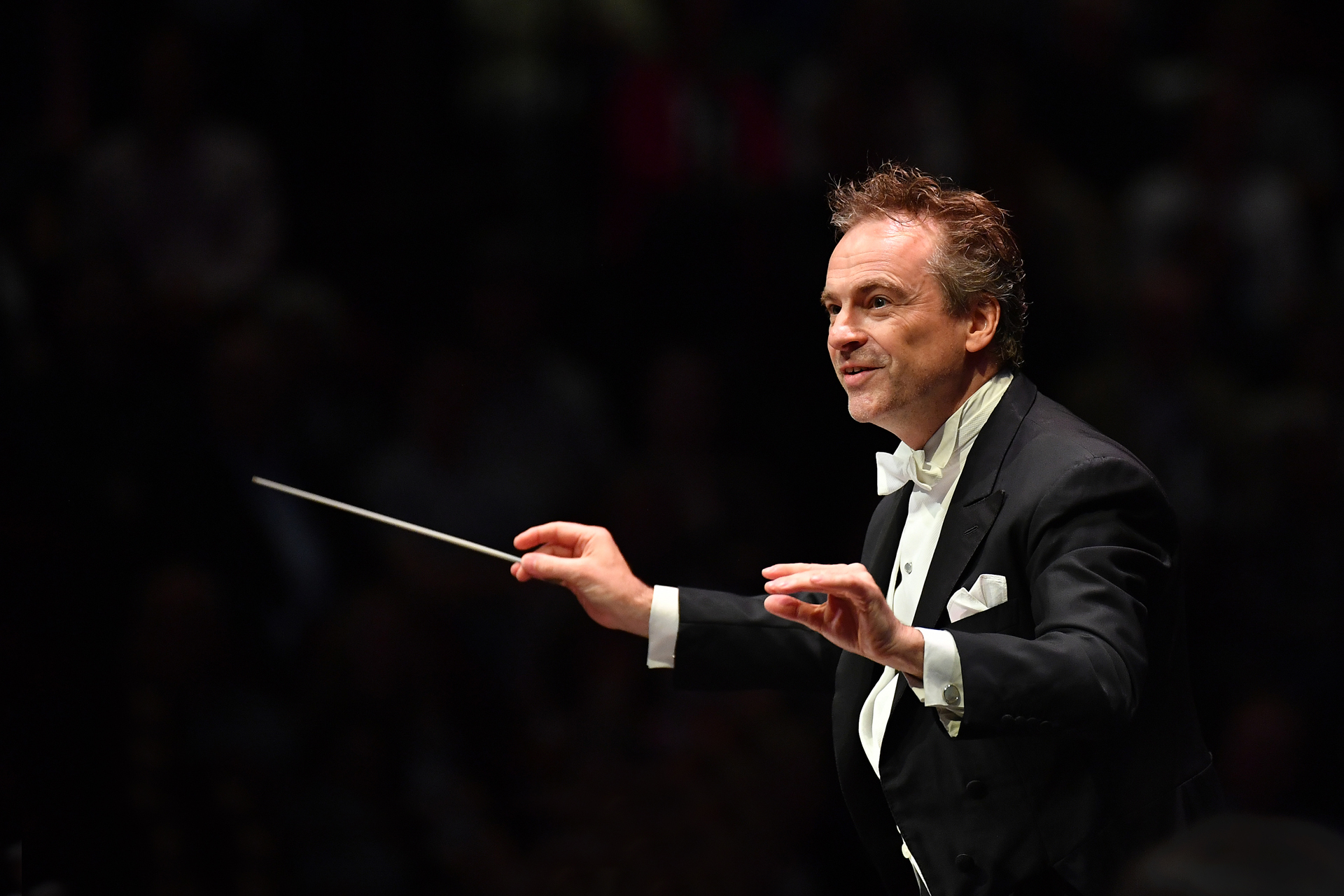Who is the greatest British conductor in charge of a major orchestra? It's subjective, but my answer is not what you might expect. Jonathan Nott has done all his major work so far on the continent. He left the Bamberg Symphony Orchestra in excellent shape to another of the world's best, Jakub Hrůša; and now he is, as we learned from two long-term players in the Proms Plus talk, liked and respected across the board at the Orchestre de la Suisse Romande.
Does anything remain of that French-Swiss timbre which still comes across so distinctively on Ansermet's 314 Decca recordings with the orchestra (a further 624 broadcasts are lodged in the Suisse Romande archive, awaiting further dissemination)? Possibly in the bright, cutting-edge brass and the supple wiriness of the strings, though the woodwind is vastly more sophisticated than in Ansermet's time.
It seems the orchestra found its feet quickly in the tricky Albert Hall acoustics during rehearsals; Jeux, Debussy's enigmatic ballet score for Diaghilev, rippled and glinted, drawing you in to the mystery with flecks of startling colour and much more sweep to the dance rhythms than usual in this tricky score (who would guess from its eastern promise that it featured Nijinsky as a tennis player in naughty games with two ladies?). The dissolve after a persuasive climax was as deft as the one achieved by Ludovic Morlot with the CBSO in Debussy's "Sirènes" the previous evening. 
Cue for scoring here surely comes from Ravel's "Five O'Clock Foxtrot" for Wedgwood teapot and china cup in L'enfant et les sortilèges, to feature in Saturday's Prom, and the rippling clarinets in the finale are surely of the same provenance. Capuçon never abused a star soloist's privilege, his moto perpetuo in the finale simply offsetting more orchestral wonders, and his generous encore with the orchestra – Massenet's Meditation from Thaïs – placed the supple inward beauty of the melody first and any showmanship second.
Stravinsky's Petrushka is not an easy score to manipulate in Albert's Colosseum, and its opening fairground buzz could have done with more cut from where I was sitting, especially since Nott, like Ansermet, prefers the thicker textures of the 1910 original. But the wistful ditty based on a song about Sarah Bernhardt's wooden leg – Stravinsky didn't know the source and had to pay royalties – gave the first indication of a poignant freedom which was to give "Petrushka's Cell" a novel space for the sad puppet's self-communings to breathe (with the best work I've heard here from the solo pianist, uncredited in the programme). 
Following the perfectly-placed final pizzicato note, the enigma that Diaghilev disdained – he would have preferred an applause-drawing forte – was brushed aside, after an enthusiastic reception, with the most brilliant of encores. That was Ligeti mania at the start, surely, but then all the fast showmanship, tziganery tinged with the mania of the Hungarian friss, or fast section of a two-mood national dance? It turned out to be the finale of his early (1951) Concert Românesc. May Nott's further adventures with his Swiss orchestra be as dazzlingly original as what Ligeti went on to do – it already sounds as if they will be.













Add comment